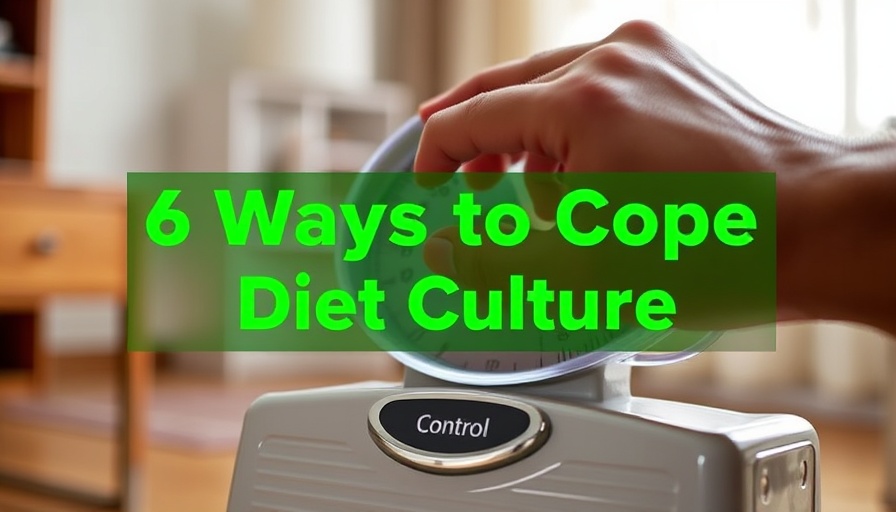
Breaking Free from Diet Culture: An Essential Guide
In a world dominated by narrow beauty standards and relentless diet trends, it's easy to feel overwhelmed. The concept of dieting has become synonymous with self-worth for many, yet it doesn't have to be this way. Understanding how to navigate diet culture can significantly enhance our emotional and physical well-being. This article explores essential strategies for coping with the pressures of diet culture, promoting not only better health but a more fulfilling life.
In '6 Ways to Cope With Diet Culture', the discussion dives into crucial strategies for managing societal pressures, inspiring our deeper analysis of this important topic.
Historical Context: How Diet Culture Took Over
The phenomenon of diet culture is relatively new, stemming from a larger cultural shift that began in the mid-20th century. As mass media began showcasing slim ideals, individuals, especially women, started to equate success and beauty with thinness. Understanding this history is crucial, as it highlights how societal pressures shape our behaviors and self-perceptions today.
Why Awareness is Your Best Defense
Recognizing the impact of diet culture is the first line of defense. By becoming aware of how often diet-centric conversations and advertisements infiltrate our lives, we can make conscious choices to counteract these influences. Education about the potential harms of diet culture allows individuals to reclaim their narratives, placing value on health and well-being over mere appearance.
Shift Your Focus: From Dieting to Nourishment
One effective coping strategy is shifting the narrative from dieting to nourishment. By focusing on fueling the body with a variety of foods, individuals can break away from restrictive mindsets. This approach encourages a healthier relationship with food, emphasizing moderation and enjoyment rather than deprivation. Eating becomes a pleasurable activity rather than a burdensome chore.
The Role of Community and Support
Finding a supportive community can be instrumental in combatting the pressures of diet culture. Engaging in conversations about body positivity and health at every size allows individuals to feel validated and understood. Online groups, local workshops, or even friends who share similar values can help reinforce healthier attitudes and provide a space for discussing struggles and triumphs.
Practicing Self-Compassion as a Tool
Self-compassion is often undervalued yet plays a crucial role in coping with diet culture's pressures. Instead of criticizing ourselves over perceived flaws, practicing kindness towards ourselves fosters a positive self-image. Engaging in positive affirmations and daily self-care routines can strengthen this sense of compassion and promote overall emotional health.
Embracing Flexibility and Intuition
Rather than adhering strictly to rigid dietary rules, learning to listen to our bodies can help foster resilience against diet culture. Intuitive eating encourages individuals to recognize their hunger cues, making choices based on how food makes them feel instead of pre-established rules. This flexibility can significantly alleviate anxiety surrounding eating.
Reclaiming Your Body Image
Coping with diet culture also involves reframing how we view our bodies. Engaging in activities that promote body appreciation—whether through exercise, art, or mindfulness—can improve body image and help us see ourselves as deserving of love and respect, irrespective of societal standards.
Conclusion: Move Towards Wellness
Cutting through the noise of diet culture requires effort but leads to a more fulfilling and authentic life. It's about reclaiming freedom in how we think about food and our bodies. Whether it's embracing intuitive eating or enveloping ourselves in a supportive community, the steps taken towards dismantling diet culture offer profound benefits.
As you reflect on these suggestions, consider how you can implement even small changes in your daily life. The journey towards wellness and self-acceptance is worth embracing, not just for yourself but for everyone around you.
 Add Row
Add Row  Add
Add 




Write A Comment